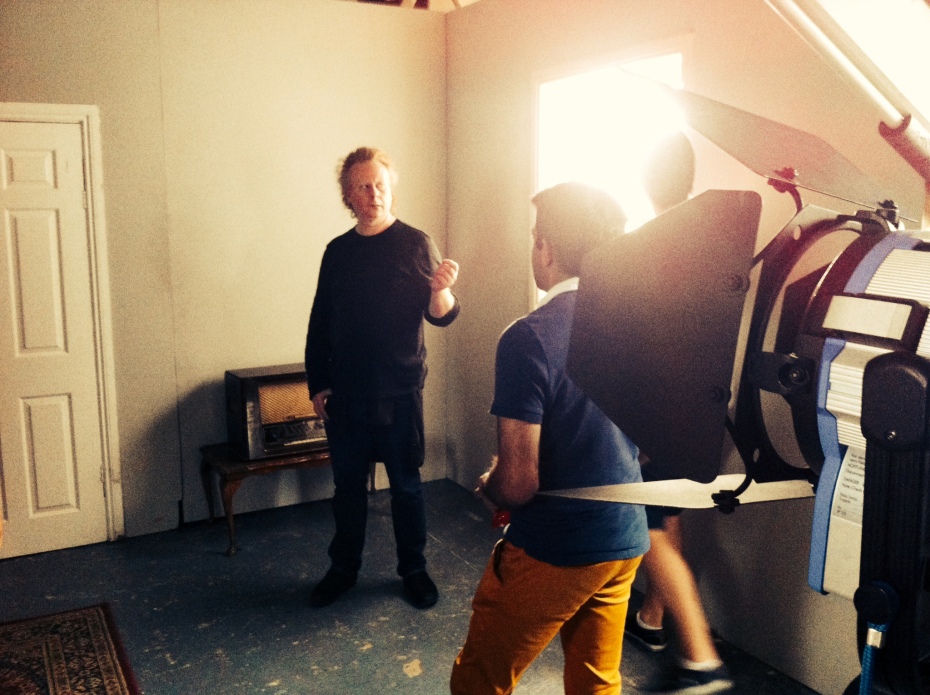
The above sentence may sound like a pretentious bellicose statement pronounced by a director on the chaotic and high-tech set of the latest summer blockbuster. Instead it was calmly expressed by writer and director David Pope within the small and intimate walls of the Filmmaking Foundation Course at London Film Academy, where the only rotors you could hear were the ones providing forced ventilation (and not those of a helicopter going to war carrying a Hollywood superstar).
It might sound a little bit over-the-top, but anyone who’s ever walked on a set will confirm that you can’t complete a film without discipline, and you can’t have discipline without someone making decisions and keeping things running smoothly in the schizophrenic mayhem that is the cinema industry.

Pope was among the tutors we met during the two super intense weeks of training required to complete our assignment: in the space of ten days, write, shoot and edit six short films based on a brief. The roles we covered ranged from screenwriting to camera operating, from clapper loading to focus pulling, and from sound mixing to editing. Going through all of them would result in a boring autobiographical account of two amazing weeks spent with one of the most international, passionate and diverse crew I’ve ever worked with. I’ll focus instead on a few ideas delivered by some of our tutors in the form of epigrams.
“If you can visualise it, then you can make it.” said director of photography Jonathan Harvey while going through the impact of camera lens choices. Adding right after: “Lighting is about motivation of the story.” Which means to me: cinematography is at the service of your character’s motivations and needs, but as soon as you have your lighting scheme clear into your mind, the only limit to creativity is dictated by time and money.

During the workshop on Visual Storytelling Pope covered the main areas involved in adapting a story for the screen, from writing to how to cast and work with actors, but I will focus here on how a crew is supposed to get a job done under pressure: “Fast, precise and coordinated like F1 pit crews. This is how the camera team works.” Which reads: if you, as a director, hesitate, you lose money. If you lose money, there is a high chance that you won’t be called on set again. Because cinema is also teamwork based on problem solving: if you manage to win the respect of your crew and find solutions when issues arise, watching a team operating smoothly on set is pure delight.
Post-production is then that defining moment when you finally discover if a small error during the shooting has become a HUGE problem in the editing room. This might for example involve a mistake in the frame, an incorrect camera angle, or something that went wrong with the microphones. The latter case is when a dimension usually invisible becomes concretely evident, because, according to sound recordist Carine Koleilat, “Good sound is when nobody notices it.”

The thing that you immediately notice is how a film gets bigger and bigger in terms of logistics and people involved, which leads me to the last statement I’d like to report. This is the clearest definition of the importance of quality over the look and feel of creative content, and was delivered by producer Cristopher Granier-Deferre while breaking down a script to define its budget: “If your film’s shit, your credits ain’t gonna make it better.”
(Photos taken by Nicolò Gallio during the London Film Academy’s Filmmaking Foundation Course, 30 June-11 July 2014).